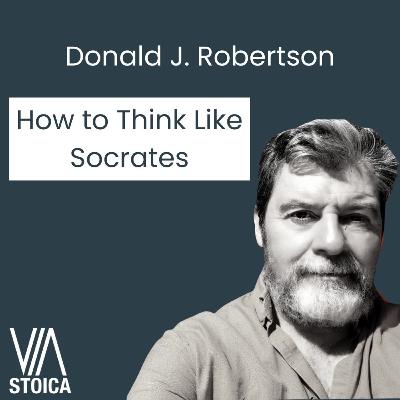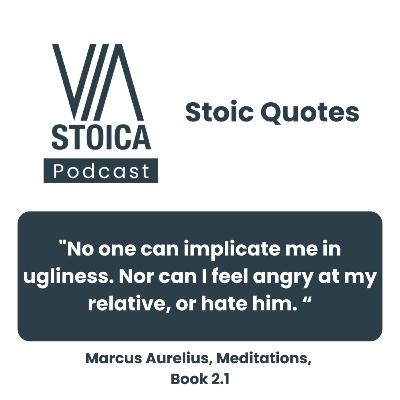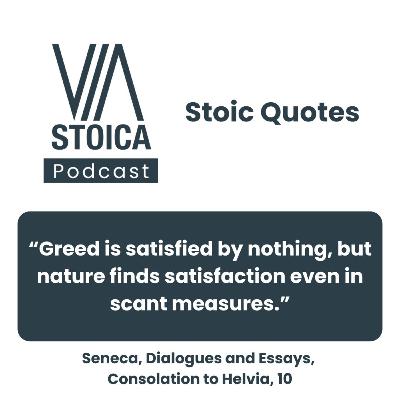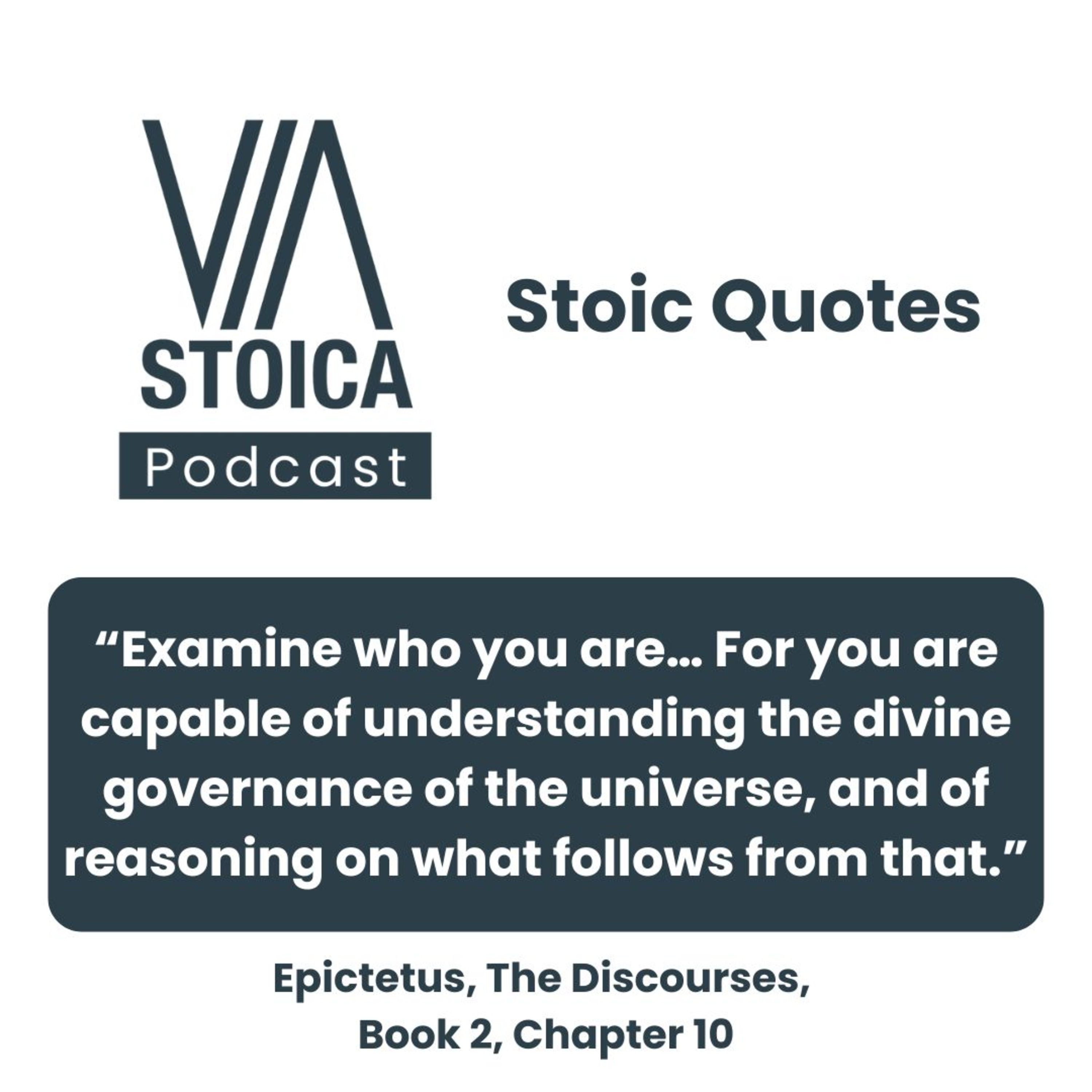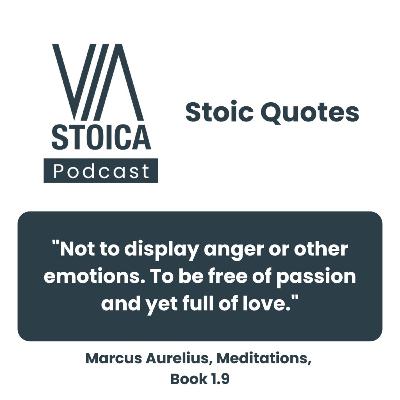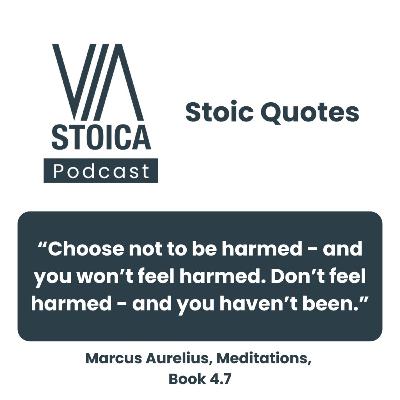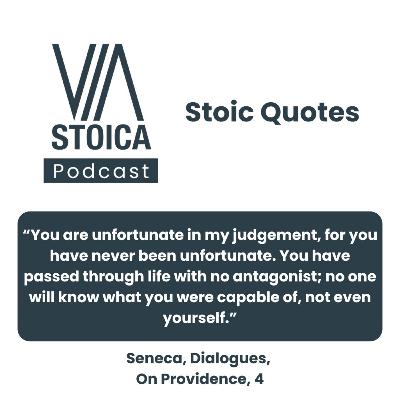Welcome to the Via Stoica Podcast, the podcast on Stoicism.In this episode, we explore what it truly means to be a friend and to have one. We often say “a friend in need is a friend indeed,” but the Stoics invite us to look deeper. What makes a friendship good? When does it help us grow in virtue, and when does it distract us from it? Drawing on the insights of Seneca, Epictetus, and even Aristotle, this episode looks at friendship not as a social convenience but as a moral relationship that reflects our own character and self-knowledge.For the Stoics, friendship begins within. Seneca reminds us that “The wise person is content with themselves, but not that they wish to be without friends.” (Moral Letters to Lucilius, 9.3)In other words, genuine friendship can only grow from inner stability. If we depend on others to complete us, we’ll mistake attachment for care and convenience for connection. But if we first learn to be at peace with ourselves, we can approach others freely, not out of need, but from shared virtue and goodwill.Aristotle described three types of friendship: those of pleasure, of utility, and of virtue. The Stoics agree that only the last kind, friendship rooted in moral growth, endures. As Seneca wrote to Lucilius, “Associate with those who will make a better man of you; welcome those whom you yourself can improve.” (Moral Letters, 7.8)True friends are those who help us live according to reason, who hold us accountable with honesty and kindness, and who rejoice in our happiness as their own.Here are a few Stoic practices from this episode you can explore in your own life:Be content alone. Practice solitude to build a calm inner base before seeking connection.Examine your friendships. Ask whether they are based on pleasure, utility, or virtue.Pay full attention. When with a friend, give them your complete presence; it is the essence of friendship.Cultivate gratitude. Cherish the time you share with good friends; hold them in spirit even when apart.Friendship, like all externals, is a preferred indifferent; it enriches life but should never define our peace of mind. When we accept that change and loss are natural, we can honor past friendships without clinging to them and stay open to new ones that align with virtue.By the end of this episode, you’ll see that Stoic friendship isn’t about dependence or detachment, but about mutual improvement, two people walking the path of virtue together, freely, honestly, and with joy.Listen to the full episode now and discover how friendship can transform the way you think, act, and see your life.Read the companion article: https://viastoica.com/10-seneca-quotes-on-friendship/Support the show🌐 viastoica.com🎯 viastoica.com/stoic-life-coaching👤 viastoica.com/benny-voncken▶️ YouTube: @viastoica📧 info@viastoica.com🎙️ Produced by: badmic.com





